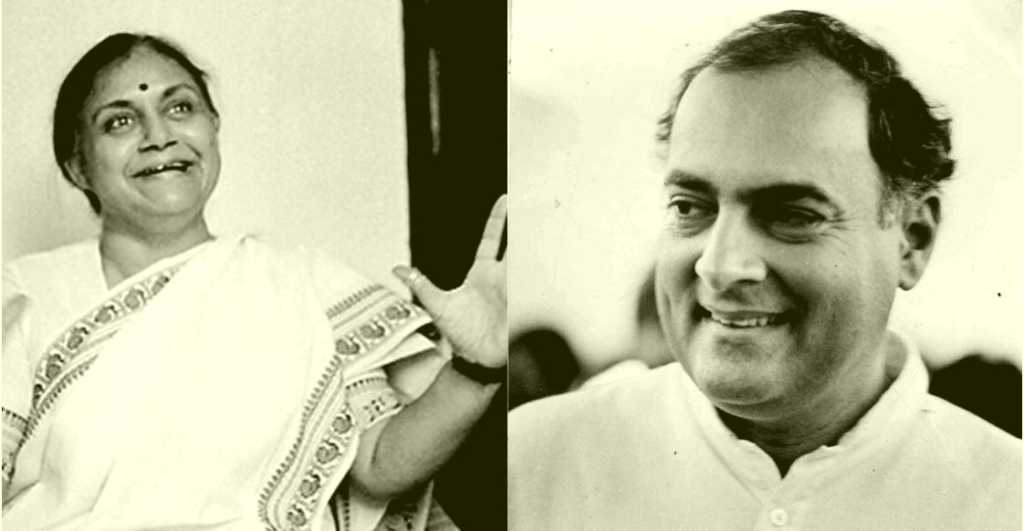Sheila Dikshit, despite the corruption accusations, remains one of the better Chief Ministers Delhi has seen. Even within the Congress party, she is one of those who have carved a strong and stable place for themselves despite facing rebellion.
In the 15 years that she governed Delhi, a lot of it changed, mostly for the better. It was during these years that a shift to CNG buses was made, the road network improved, Commonwealth Games were successfully conducted etc.
The Sheila Dikshit era in Delhi was brought to sudden halt by Arvind Kejriwal when the Aam Aadmi Party won with a huge margin. Whether it was Kejriwal’s alluring promises or Dikshit’s tarnished reputation as a corrupt leader that led to an unprecedented election result, is debatable. Either way, it marked the end of Dikshit’s political career.
As is the practice among the better educated public figures of writing autobiographies ‘post retirement’, Dikshit has come out with hers called Citizen Delhi: My Times, My Life.
In a political career spanning over three decades, there are bound to be surprises for the readers. One such surprise comes when Sheila Dikshit writes about the controversial law to overturn the Supreme Court verdict in the Shah Bano case. She was elected to Lok Sabha from Kannuaj at the time when the case gathered attention. Sheila Dikshit recalls that Rajiv Gandhi had asked her to get a consensus of the party MPs around the Muslim Women’s Bill. Sheila Dikshit further recalls that after the Supreme Court verdict which declared that Shah Bano was entitled to maintenance, Gulam Mohammed Mahmood Banathwala, a self-declared “speaker for” Muslims and a leader of Indian Union Muslim League(IUML) introduced a private bill that sought to exclude Muslim women from the ambit of the Section 125 of the CrPC under which Shah Bano had sought relief.
Sheila Dikshit writes that Rajiv Gandhi asked the MoS for Home Affairs, Arif Mohammad Khan to deliver a strong defense of the Shah Bano judgement in the parliament and Arif didn’t disappoint Rajiv Gandhi. However, according to Dikshit, the issue was framed in such a way by the parties with vested interests across the religious and political spectrum that ‘it fell victim to the political fault lines that independent India had inherited’. To tackle the situation, Muslim Women (Protection of Rights on Divorce) Bill was introduced and all the Congress MPs were asked to speak in favour of it. Sheila Dikshit goes on to mention that many even with the Congress party doubted the necessity of such a bill and had their reservations about it but nevertheless supported it in a show of discipline.
Sheila Dikshit’s book comes out with this information at a rather interesting time. At a time, the Triple Talaq Bill has been taking a major part of the news and Congress has been opposing it and has stalled it in the Upper House after it was passed in the Lower House, Rajiv Gandhi’s treatment of the Shah Bano verdict uproar highlights a few important points.
It would not be far-fetched to say that the Congress has been and continues giving in to religious appeasement policies. Whether it was upturning the Supreme Court verdict then or it is opposing Triple Talaq Bill now, what is this if not outright and blatant religious appeasement? For which sane minded, modern, liberal and educated person would be of the opinion that an uneducated, divorced old woman should not get her maintenance or that a man can divorce his wife just by texting her the word ‘talaq’ thrice?
If religious appeasement has been consistent policy for the Congress then why do Congress leaders and supporters go on harping on the same string of secularism every now and then? For what does Secularism mean to those whose politics is knitted in religious appeasement.
Another subtle but significant point that these two episodes highlight is the way Congress looks after the women of the country. Both of these laws majorly affect women and are directly linked to their empowerment and Congress failed the Muslim women on both the occasions.
